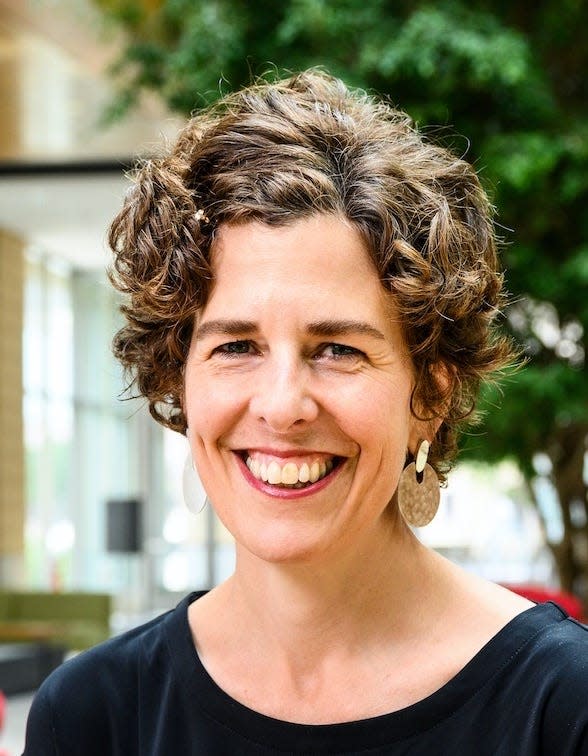Political indoctrination? Here is what goes on in my UW classroom
Editor's Note: This is the part of a series of three essays on free speech in the University of Wisconsin system. Look for other perspectives from Rep. Dave Murphy, chair of the Assembly Committee on Colleges and Universities, and former UW System President Kevin Reilly.
I have been hearing a lot lately about indoctrination in UW System classrooms and it is pretty disturbing.
And unfamiliar.
I am a faculty member in the political science department on the UW-Madison campus. I have held that job for the past 23 years. I can’t speak for what goes on in anyone else’s classroom and I am not speaking on behalf of the university in any official way. But I know that there are many Wisconsinites who want a thriving public university higher education system, and I thought they might like to hear another point of view.
More: Free speech, diversity of views critical to quality of education at Wisconsin universities
This past semester I taught an undergraduate course on public opinion. The students started the semester concerned about political polarization and divisiveness. Like many people in this state, they were wary of talking face-to-face about public affairs.
But I made the students talk with each other, every class.
The students sat at round tables, not in a lecture hall. They spent most of their class time talking with each other, guided by questions I posed about the course material.
Most of these students leaned left politically. About a month into the course, they read a portion of a book I wrote about the rural versus urban political divide in our state. It helps explain why many rural residents facing economic hardships vote for Republican candidates – what some people on the left call “voting against their interests.”

Many of the students responded with surprise to the views they encountered in that book and in their conversations with classmates from smaller communities. They became aware that people, even those they disagree with, often have valid reasons for why they vote the way they do. One student wrote, “Before I used to think, ‘People who think like this are wrong, and I shouldn’t listen to them,’ but now I catch myself wondering why they think the way they do and wanting to hear their stories and experiences.”
We talked about racism, too, in my class. We focused on racism on our own campus. The vast majority of the students in the class were white, and were unfamiliar with the discrimination their classmates of color face. I played recordings of students of color talking about their experiences on our campus. The white students reported never hearing before that Black students are sometimes singled out by their professors in a hostile way. It was a lesson in the fact that even institutions we love and are proud to be a part of have some serious listening and learning to do.
More: More than half of UW students choose not to express controversial views in class, survey finds
We talked about the role that our leaders play in setting the tone for how we treat each other. We also talked about the responsibility each of us has in contributing to that tone.
That is a big responsibility, but I am happy to report I see UW undergrads rising to the challenge.
One student wrote this the first week of class: “Due to my strong opinions, I often find it difficult to fully understand where an opposing opinion is coming from. To be blunt, it is challenging for me to open myself up to the logic behind opposing opinions because I believe that I am right.” But she wrote this the last week: “I can say that after taking this course, I am more open to opposing opinions. I now understand that political opinions are developed from a range of factors…”
Another student offered this reflection in her final paper: “My conception of what being a good citizen is has greatly evolved over the course of [our course]…I now think that it’s even more necessary to not just understand your own opinions, but also those of other people. Too often, we see politicians, media elites, and even citizens weaponizing our differences as political ammunition for one side or the other instead of appreciating the various perspectives. It certainly takes a lot of conscious effort to approach political discourse with an open mind and resist the urge to argue during the charged political environment we live in, but I’ve come to understand that this is a crucial step in creating a well-functioning democracy.”
Perhaps rather than worry that students on UW campuses are being indoctrinated, we instead should listen to them and follow their lead: Don’t believe everything you hear or read. Take the time to listen to people and understand where they are coming from. And perhaps most importantly, enjoy the feeling of people treating each other with respect.
That’s what goes on in my UW classroom.
Katherine Cramer is the Natalie C. Holton Chair of Letters & Science and Virginia Sapiro Professor of Political Science at the University of Wisconsin-Madison. She received permission from the students quoted to use their comments in this column.
This article originally appeared on Milwaukee Journal Sentinel: UW political science professor pushes back on claims of indoctrination
